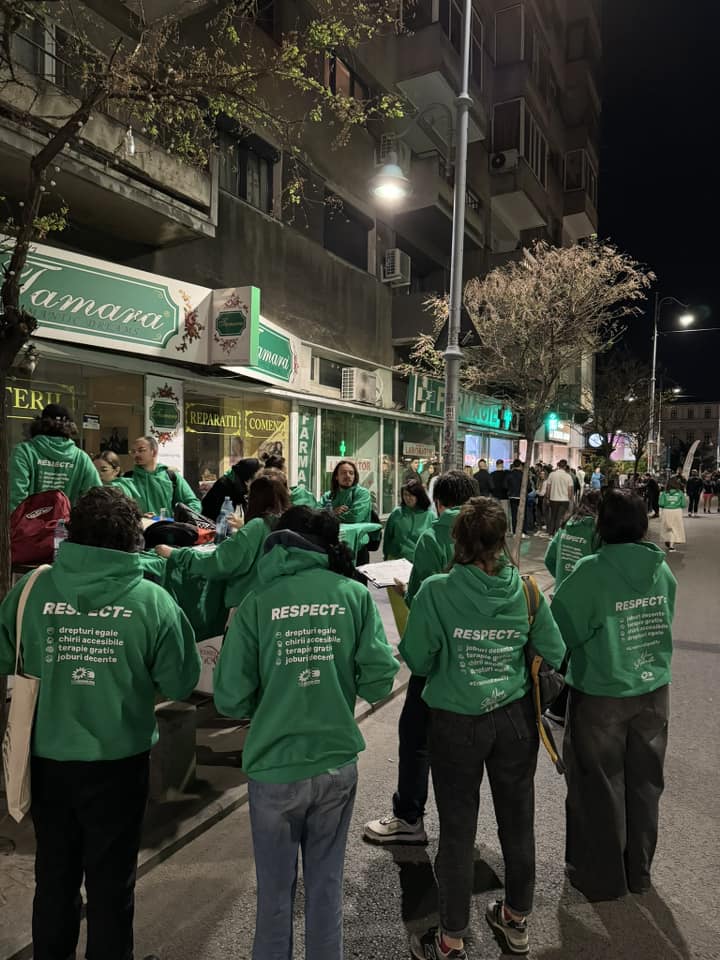by Andreas Ristache | Audience Contributor
In the June 2024 elections, Nicu Ștefănuță secured a seat in the European Parliament with a margin of 0.8% above the electoral threshold, becoming the first independent MEP from Romania.
20% of young people aged 18 to 34 participated in the vote, out of which 7.86% aged 18 to 24, most of them first voters, a significant increase compared to the previous election, which recorded a historically low youth turnout. With a platform targeting young people and driven by social media, Nicu Ștefănuță addressed, through his online campaign, key issues that matter to young people, such as mental health, political education, and transparency in decision-making. Convinced that youth participation is crucial for the future of politics, he has built an active community, earning the trust of young people who often feel excluded from the political sphere.
"Parties choose candidates behind closed doors"
Nicu Ștefănuță: The system doesn’t allow for informal participation, which makes it unappealing to them. Party laws dictate that most political candidates are selected behind closed doors, with decisions made on paper rather than through open, merit-based processes. Young people, who tend to be more principled, are turned off by such practices.
Additionally, the thresholds are extremely high, you have to exceed very high percentages – 100,000 signatures, 5% of the vote as a party (in Romania, in the European elections an independent candidate shall raise 100.000 signatures on paper and overpass a threshold of 3% – EN.). These are very, very big obstacles.These challenges further discourage young people from engaging in the system.

Many young people feel that politics does not reflect their realities or address their needs. Increasing youth participation in elections requires more than simply organizing voting days – it depends on how politicians and institutions engage with them. Many young voters feel that critical decisions affecting their lives are made without their input, leading to a sense of alienation.
Encouraging youth participation: beyond just voting
Reporter: What measures should be implemented to increase youth voter turnout?
Nicu Ștefănuță: “I’m not just focused on voter turnout—I care about meaningful engagement. What I liked about Generatia Egalitate (#generatiaegalitate), the community I built around the elections and the values I stand for, is that it offered an informal way for anyone to get involved. This kind of open participation is essential.”
He also notes that other politicians, such as Simion and Mrs. Șoșoacă, have gained traction because they communicate in a direct, accessible manner that resonates with young voters. “People perceive them as more honest because they speak plainly—what you see is what you get.”

The European Union’s role in engaging young voters
Reporter: How can the European Union help member states encourage young people to get involved in politics?
Nicu Ștefănuță: “The EU organizes various campaigns and competitions to encourage voting, but I believe it should do even more throughout its mandate, not just during election periods. I plan to discuss with the European Parliament’s communications director the possibility of launching more initiatives to encourage young people to vote.”
Reporter: Many young people lack knowledge about European institutions. Do you think they understand how high-level decisions impact their lives?
Nicu Ștefănuță: “No, they are not well-informed. However, they are more open to the EU because they’ve grown up in an interconnected world where information flows freely across borders. TikTok and Instagram don’t have national boundaries – young people consume content from all over the world, so they get informed faster. But European institutions still feel distant and inaccessible to them.”
He highlights that efforts have been made to bridge this gap. “The European Parliament welcomes spontaneous visits. Young tourists and participants in programs like DiscoverEU frequently visit us. They knock on our doors, reach out, and we make sure to welcome them.”
The role of social media in mobilizing young voters
Reporter: You mentioned social media. How important is it in mobilizing young people?
Nicu Ștefănuță: “It’s absolutely crucial because it’s their primary source of information. I ran numerous Instagram ads explaining, step by step, how to download and sign petitions, where to vote, and how to navigate election logistics. Many official websites aren’t user-friendly—on election day, people find themselves wondering, ‘What do I do? Where do I go?’ So I made sure to provide clear, accessible links to help them.”
About the author
Andreas Ristache is a student of the University of Bucharest, Faculty of Journalism and Communication Studies. He produced this interview during his studying programme with the university; the text was curated by Manuela Preoteasa. A Romanian version of this article is available on Pagina de scris.
Written by
Shape the conversation
Do you have anything to add to this story? Any ideas for interviews or angles we should explore? Let us know if you’d like to write a follow-up, a counterpoint, or share a similar story.
